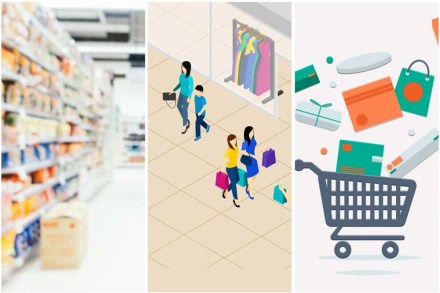Almost all industries across the world, including real estate, has got impacted by the spread of the Covid-19 pandemic. However, with the ease in lockdown restrictions, some sectors are not only showing signs of revival but have also started doing well than most others.
Organised retail is one of them. Industry sources say, in times of Covid-19, organised retail and e-commerce are on an upswing. According to IBEF, the share of organized retail in India is likely to double to 18% in 2021 (from 9% in 2017). Likewise, e-commerce is expected to more than double to 7% from the previous 3% in the same period.
According to a recent report by ANAROCK & Retailers Association of India (RAI) on ‘Indian Retail’, amidst the pandemic-induced slowdown, essential goods will fuel the retail industry’s growth in the coming quarters as consumer expenditure continues to remain focused on essentials — particularly food and grocery. The average bill value for essentials has gone up 1.5 times after lifting of lockdownؙ — from Rs 650 per basket in early March to more than Rs 900 per basket presently.
India’s retail industry ranks 4th in the world in terms of size, which accounts for 10% of the India’s GDP and contributes 8% to the overall employment in the country. The market size of the industry was approximately USD 0.79 Tn in 2017 and was estimated to reach USD 1.75 Tn by 2026, growing at a CAGR of 9-11%. However, nearly 88% of the market is still unorganised while the remaining 12% comprises of both organised and e-commerce.
“Back in 2017, e-commerce accounted for mere 3% share of the overall retail industry, which is expected to be 7% by 2021. It is estimated to cross USD 200 Bn mark by 2027 compared to USD 24 Bn in 2017. The share of organised retail and e-commerce are expected to rise exponentially amid fear of contagion. Rising consumption, rapid urbanization, digitization, and internet penetration are the major reasons behind the growth of retail industry in India,” says Anuj Kejriwal, CEO & MD, ANAROCK Retail.
Mohit Goel, CEO, Omaxe Ltd, says, “There is a huge demand for organised retail in India, currently at 17-18%. Going forward this share is bound to increase owing to shoppers and businesses increasingly preferring cleaner and more hygienic shopping spaces. In this category, commercial redevelopments at the center of a thriving market are fast catching up which not just gives a safe, new-age and organized shopping experience, but also maintains the essence and aesthetics of that location.”
“Retail with a 2-3 year delivery timeline has better prospects. Omaxe Chowk in Chandni Chowk is one such example where Omaxe in PPP with North DMC, is developing parking for 2100+ cars, retail shops, and a food court with modern architecture, amenities and tourism touchpoints to enable shoppers to maximise their stay,” Goel adds.
According to the report, the nationwide lockdown to contain the COVID-19 had temporarily closed the malls and retail stores across the country. This severely impacted sales and revenues of retailers and mall owners. After 76 days of lockdown, malls reopened on 8th June 2020. Since then footfalls are limited in the malls but sales have started, resulting in high conversion ratio. As per the RAI survey, a few categories such as food and grocery, consumer durables and furniture show signs of recovery. Food and grocery business are expected to revive faster as compared to other categories.
The use of in-store technology is expected to increase and provide contactless and safe shopping experience to customers. Sanitization and hygiene are going to be of utmost priority for retailers and mall owners. Additionally, the mid-year sale period is expected to extend.
“These steps are expected to revive consumer demand – especially for essentials – and help generate revenue for retailers. Currently, consumer sentiments are low amidst COVID-19, job losses and adjustments in compensation. The retailers and mall owners need to take measured steps to revive the sentiments. On the other hand, e-commerce is performing relatively better as the fear of contagion is less in home-delivery of goods and services,” says Kejriwal.
